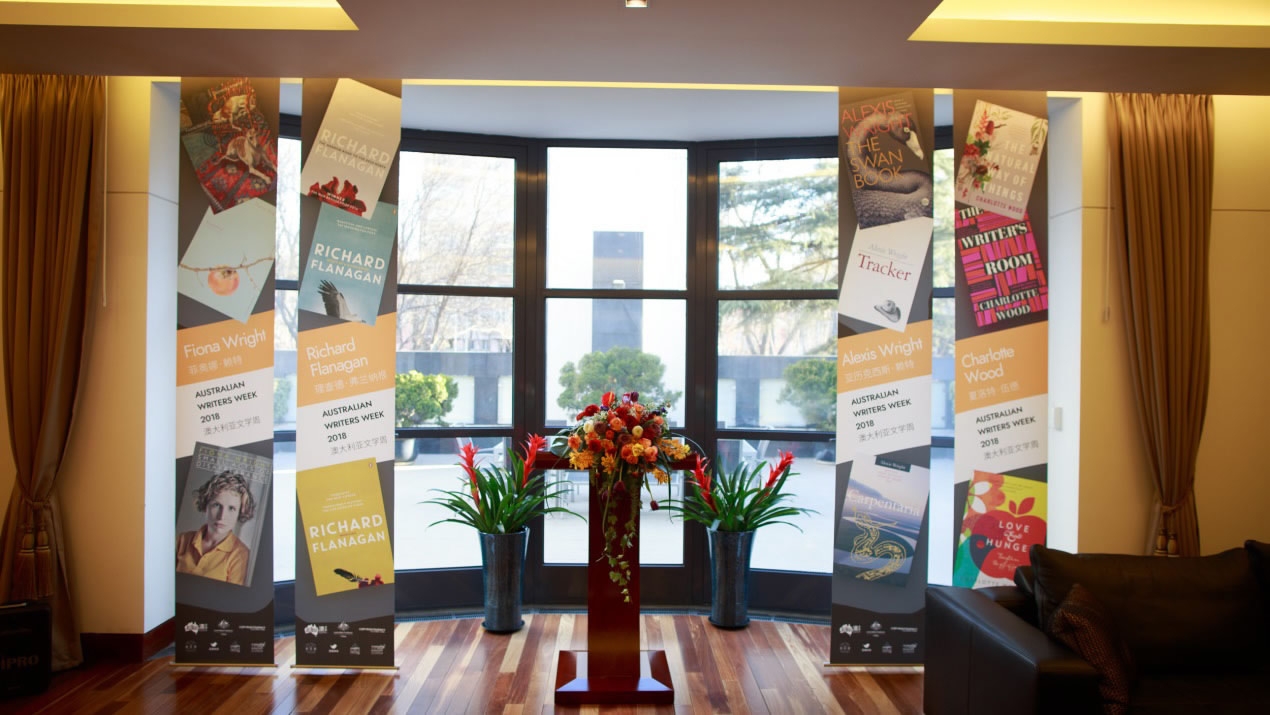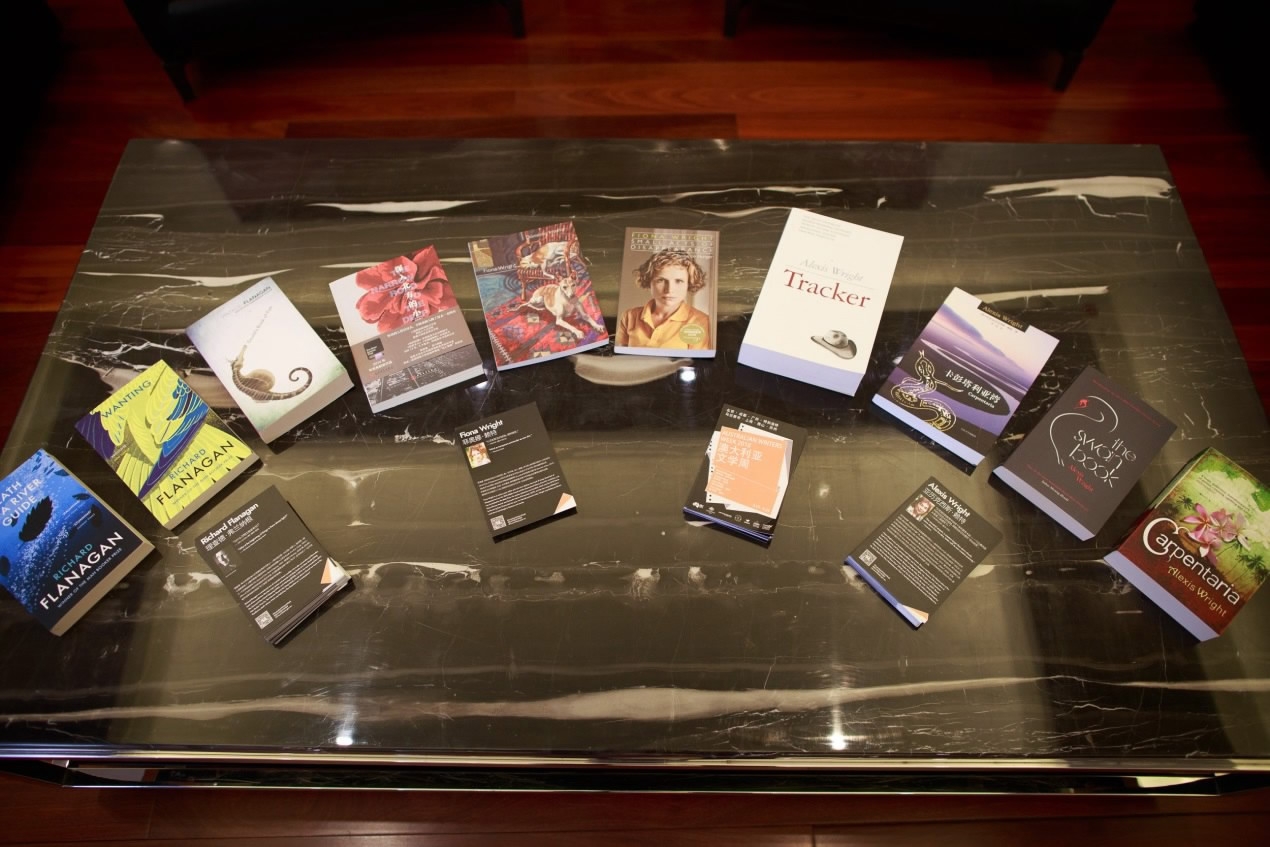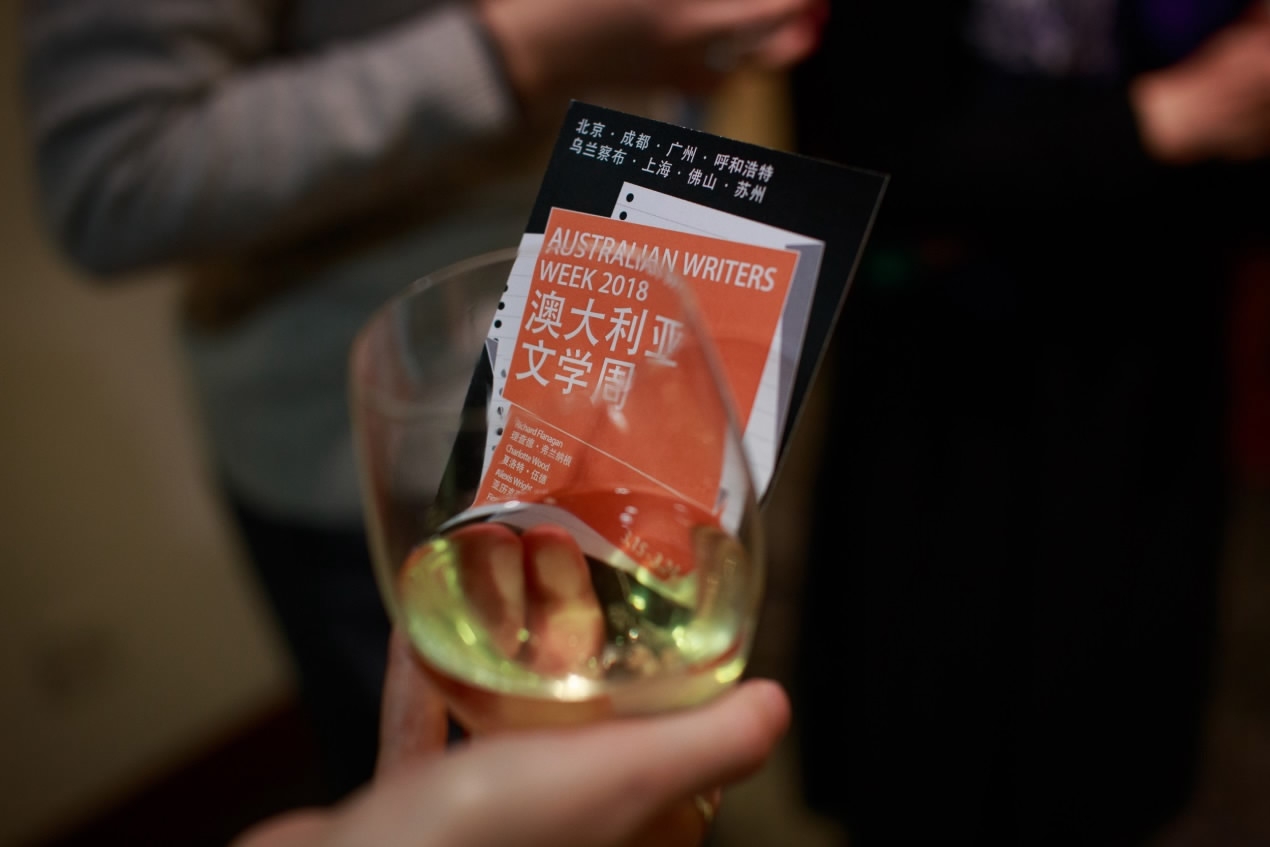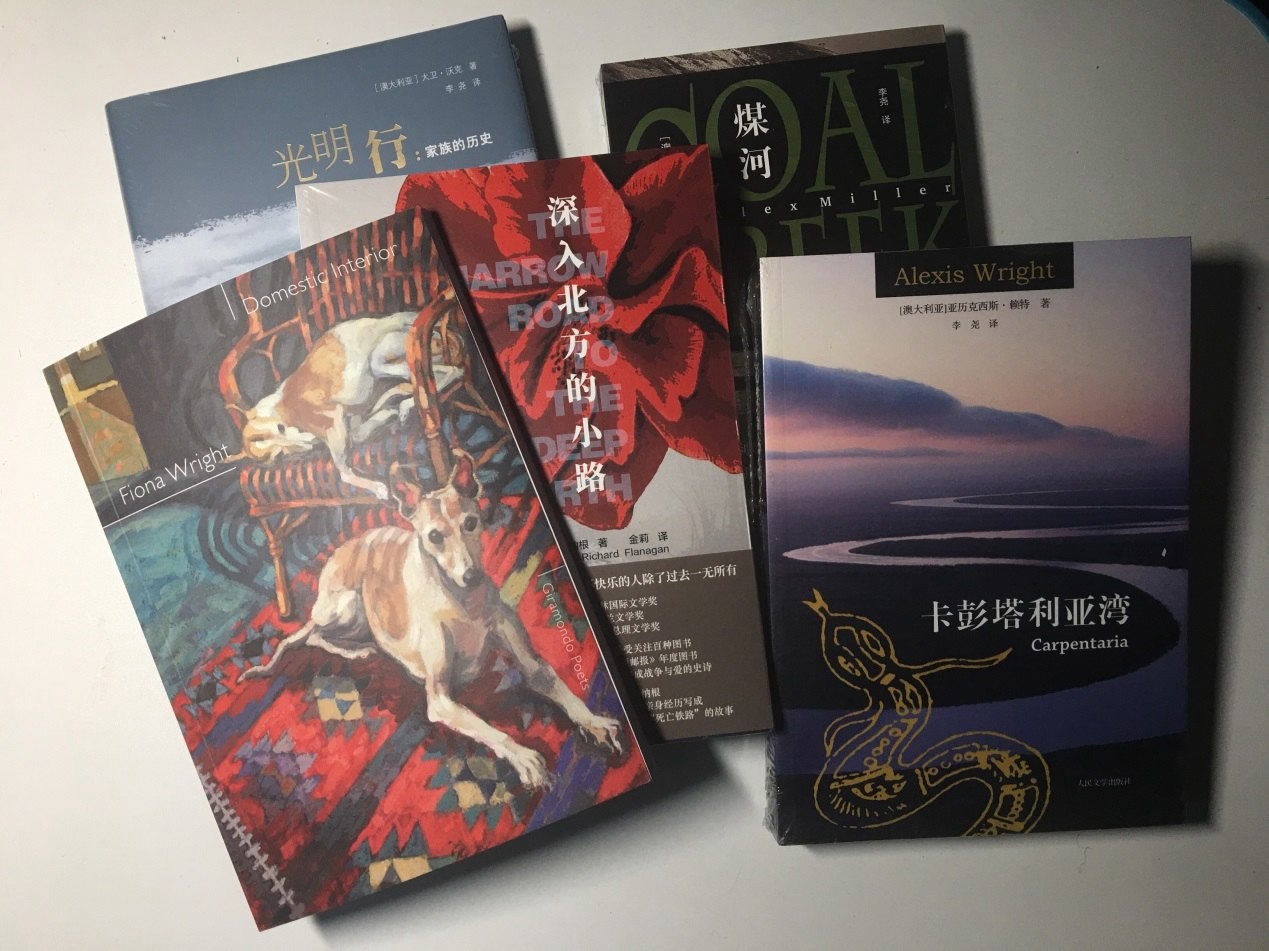
Culture
21:08, 16-Mar-2018
Prize-winning authors attend 'Australian Writers Week' across China
By Song Yaotian

You may not know this, but the hit TV series and movie –The Thorn Birds and Schindler's List – were actually adapted from popular Australian novels. Contemporary Australian writers have plenty to offer, and a writer's week dedicated to them aims to increase their exposure to Chinese readers.
The Australian Writers Week opened on Thursday night at the Australian Embassy in Beijing. Ambassador Jan Adams delivered her opening speech, saying the event is part of the new Australian Writers Series – the embassy's initiative to bring more of the country's literary voices to China throughout the year.
This Australian Writers Week is part of a promotional series held by the Australian Embassy, which is to raise the profile of Australian authors in the Chinese market, and help build a stronger relationship with Chinese publishers and readers.

Books by the Australian authors to attend the event on display. /CGTN Photo
Books by the Australian authors to attend the event on display. /CGTN Photo
Well into its 11th year, the event consistently features prominent Australian writers, who hold discussions with Chinese authors and readers. This year's line-up is very exciting. It includes Man Booker Prize winner, Richard Flanagan, and also focuses on women's contribution to literature with three Stella Prize authors: Alexis Wright, Fiona Wright and Charlotte Wood.
Flanagan, a writer from Tasmania, is considered by many to be the finest Australian novelist of his generation. In 2014, he won the Man Booker Prize for "The Narrow Road to the Deep North", which has been translated into Chinese. For him, this event isn't just about promoting his books, but also a learning process with Chinese authors.
“For me, it is to meet some other writers, to meet other Chinese writers because, you know I'm not here as a tourist. You get to understand something that is true, about a place. That's the gift of it," said Richard Flanagan.

Some of the Australian authors attend the event. /CGTN Photo
Some of the Australian authors attend the event. /CGTN Photo
Flanagan will be holding a conversation with renowned Chinese writer Yu Hua on Saturday.
“I'm very interested to meet Yu Hua. I'm very interested to hear what he might have said because I read some of his books, and I find them fascinating,” said Flanagan.
The spotlight is also on Alexis Wright, an indigenous writer best known for winning the Miles Franklin Award for her 2006 novel Carpentaria. Her great-grandfather was Chinese – a businessman from Guangdong, who eventually headed to Australia for business. This trip is both an opportunity to meet her Chinese readers, as well as to find more about her great-grandfather.

The 2018 Australian Writers Week. /CGTN Photo
The 2018 Australian Writers Week. /CGTN Photo
“It's an opportunity to talk to Chinese readers, and Chinese writers, about the work I do. To talk about my books that are being translated into Chinese. Carpentaria has been published in China and taught in universities. We only have very small information my great grandfather, some snippet of information every ten years that I find. I want to write a modern story, but bringing into that period as well,” said Alexis Wright, the author of “Carpentaria”.
Representing the younger generation is Fiona Wright, who is born after the 80s. Her collection of essays "Small Acts of Disappearance: Essays in Hunger" details her own experience with anorexia, which landed her 2016 Kibble Award.

The Chinese version of the Australian novels. /CGTN Photo
The Chinese version of the Australian novels. /CGTN Photo
“One of the things in my poetry is cities and city spaces. I'm very fascinated so far to be in Chinese cities, walk around and discover little pockets. And see how people live their lives, what the buildings are like. I love how cities bring different people together, how people shape the cities and how people are shaped by the cities and I really look forward to looking into that,” said Fiona Wright, author of “Small Acts of Disappearance”.
The authors will attend 24 activities in seven cities across the country, such as forums and discussions with other Chinese authors and readers.

SITEMAP
Copyright © 2018 CGTN. Beijing ICP prepared NO.16065310-3
Copyright © 2018 CGTN. Beijing ICP prepared NO.16065310-3